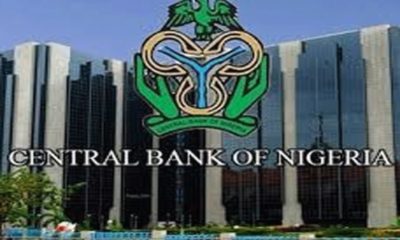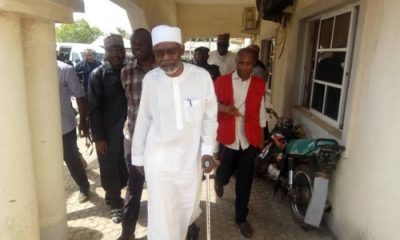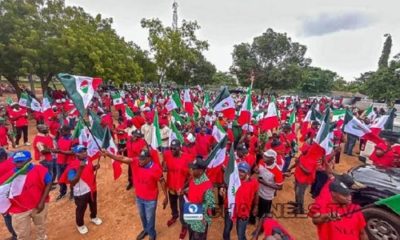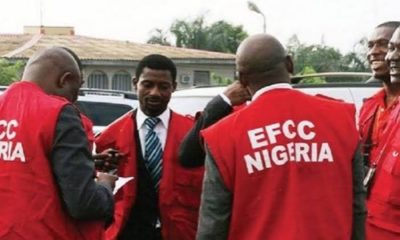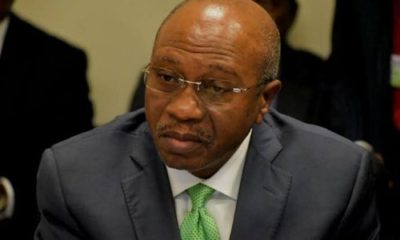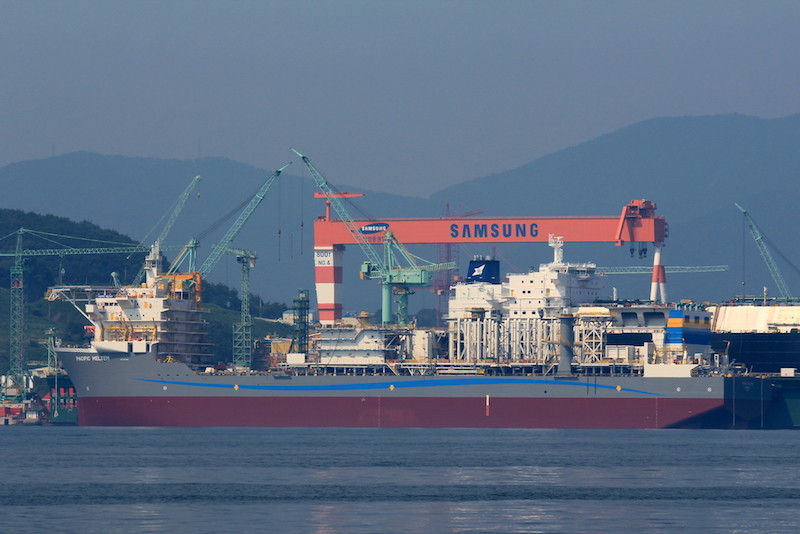Finance
NDDC diverted N183bn Niger Delta development money, Auditor General insists
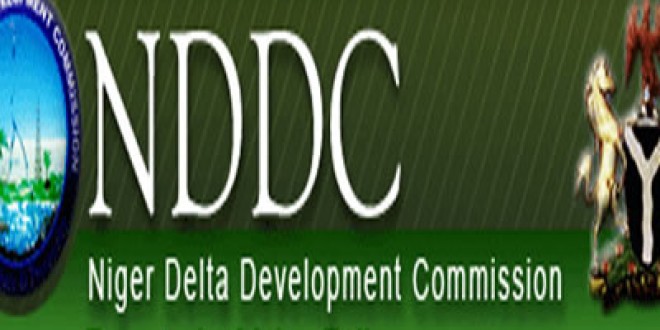
ABUJA-AT least N183 billion that was meant for the development of Nigeria’s oil rich Niger Delta, was diverted by those put in charge of the government development commission for the area, the Auditor General of the Federation, Samuel Ukura said Wednesday.
Mr. Ukura insisted on the veracity of his special audit report accusing the management of the Niger Delta Development Commission, NDDC, of diverting the money.
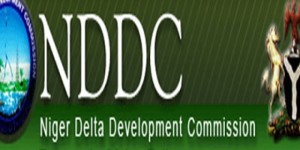 The Auditor General said his office stood by the report and directed those not satisfied to be prepared to defend their position before a special committee of the National Assembly.
The Auditor General said his office stood by the report and directed those not satisfied to be prepared to defend their position before a special committee of the National Assembly.
“The Office of the Auditor-General for the Federation stands by the Special Periodic Checks on the NDDC and its contents. Any person or corporate organization not satisfied has the opportunity to defend itself before the Public Accounts Committees (PACs) of the National Assembly,” said a statement by a spokesperson for the office, O.A.Ogunmosunle.
The auditor general had earlier made his findings about the money known to the National Assembly, as constitutionally required.
Following the reports, which urged the lawmakers to take immediate steps to recover the missing money, the NDDC took to the media to discredit the report, dismissing it as “very misleading and untrue”.
The Executive Director, Finance and Administration of the Commission, Henry Ogiri, who described the report as “premature and misinforming”, said the report tended to accuse the current NDDC management of being responsible for the alleged missing money.
“I say without fear of contradiction that the Auditor-General’s report is premature,” Mr. Ogiri said. “I say this because we are already putting together the responses to the queries which were directed to a period we were not in the Commission.”
“I completely disagree with the Auditor-General on this issue. Some of the claims he made in his report are things that do not hold water as at today. I do not believe that there is any money missing.”
However, the Office of the Auditor-General said it took serious exception to attempts by the NDDC to not only deny the allegations, but also casting aspersions on the integrity of the Special Periodic audit submitted to the National Assembly.
In a strongly worded statement in Abuja, the OAuGF said the reaction was compelled by the negative sentiments occasioned by the NDDC’s condemnation of the Special report “calculated to demean the efficacy of the Constitutional mandate carried out by the Office of the Auditor-General for the Federation.”
“It is noteworthy to state that it took NDDC16 months to grant the Office permission to commence the periodic checks beginning from 9th December, 2011 to 6th May, 2013,” the statement said.
“Similarly, it took another 16 months and several reminders to the NDDC with effect from the 24th of April, 2014 to 12th August, 2015 before the final report was submitted to the National Assembly.
“It may interest the reading public to know that at the time of this Press Release (Wednesday), the NDDC is yet to respond to the Special Periodic Checks.”
Reminding the public of the constitutional mandate of the Office of the Auditor General of the Federation to submit its reports to the National Assembly periodically, Mrs.Ogunmosunle said in doing so, due process is usually followed.
In the three special audit reports submitted to the Clerk of the National Assembly, Salisu Maikasuwa, Mr. Ukura had noted that the N183.7 billion was discovered to be missing during the periodic checks carried out by his office on the activities and programmes of the Commission between 2008 and 2012.
While about N70.4 billion was paid as mobilization to various contractors that never showed up at to site to do the job, he said another N90.4 billion was discovered to be extra-budgetary expenditure “for Head and Sub-heads without approval by the legal authorities.”
Equally, the sum of N10 billion was recorded in the books as tax deductions without evidence of remittance to the Federal Inland Revenue Service (FIRS), while about N5.8 billion was said to have been paid to contractors for projects not executed, stalled or abandoned, in addition to N1.2 billion as taxes not deducted from contractors.
Again, the report said about N3.1 billion consisted of transfers to some unauthorized accounts, while N1.7 billion was outstanding staff advances never accounted for.
Also, there was no evidence that about N785million out of N1.1 billion budgeted for the supply of furniture to various schools in Delta State was spent on the project, despite being certified as paid.
Business
Nigeria pays US$4.9 billion on petrol subsidy in 2024- NNPCL
It was however noted by Biztellers.com.ng, that although subsidy is back in effect, the main reason for that is the increasingly weak state of the Naira and the country’s extreme dependence on products importation. Also unlike the previous subsidy era, where several oil marketers were getting free subsidy refunds for unverified product importation, this subsidy era is witnessing only one importer, the NNPCL, which in effect is the sole receiver of government subsidies.
Yemie ADEOYE
INSPITE of the official position of the Nigerian government that the controversial petrol subsidy is gone for good as announced by the President on assumption of office, the state owned Nigerian National Petroleum Corporation Limited, NNPCL has disclosed that petrol subsidy is still fully operational in Nigeria, although, under a different identity.
Umar Ajiya, Chief Financial Officer at the NNPCL, disclosed that it cost the company a staggering N7.8 trillion (US$4.9) to cover this price gap in the first seven months of 2024.
Rather than simply referring to these claims as subsidies, he stated that the company is merely managing the price difference in petrol imports on behalf of the federation, stressing that this should not be misconstrued as a return to subsidy payments.
![]() This revelation has reignited discussions on whether the NNPC is indirectly offering subsidies, a concept typically defined as selling a product below its cost price.
This revelation has reignited discussions on whether the NNPC is indirectly offering subsidies, a concept typically defined as selling a product below its cost price.
Documents reviewed by Biztellers.com.ng showed that the term “subsidy” was used extensively in official correspondence between the NNPCL and the presidency, particularly in reference to the “shortfall.”
Recall that President Bola Tinubu reportedly approved NNPC’s request to utilize the 2023 final dividends due to the federation to offset these costs.
However, during a media briefing on Monday about the company’s 2023 audited financial statements, Ajiya refuted claims that the NNPC is involved in any subsidy scheme.
Ajiya further disclosed that the Nigerian government owes the NNPC N7.8 trillion ($4.9 billion) in subsidy-related debts for the period from January to July 2024.
In furtherance of his clarification to the News Agency of Nigeria (NAN), Ajiya insisted that no subsidy payments have been made to any marketer in the last nine years, citing the NNPC’s role as the sole importer of petrol under supply contracts.
He said, “In the last eight to nine years, NNPC Ltd. has not paid anyone a dime as a subsidy; no kobo has been disbursed by NNPC Ltd. in the name of subsidy. No marketer has received any payment from us for subsidy.”
“What has been happening is that we have been importing PMS, which has been landing at a specific cost price, and the government tells us to sell it at half price. So the difference between the landing price and that half price is a shortfall.
“And the deal is between the Federation and NNPC Ltd., to reconcile, sometimes they give us money, so there is no money exchanging hands with any marketer in the name of subsidy.”
Ajiya remained silent on how much of the $4.9 billion could have been remitted to the federation account if the NNPC had not been covering the “shortfall.”
It was however noted by Biztellers.com.ng, that although subsidy is back in effect, the main reason for that is the increasingly weak state of the Naira and the country’s extreme dependence on products importation. Also unlike the previous subsidy era, where several oil marketers were getting free subsidy refunds for unverified product importation, this subsidy era is witnessing only one importer, the NNPCL, which in effect is the sole receiver of government subsidies.
Banking
CBN Denies Currency Devaluation

The Central Bank of Nigeria (CBN) has refuted claims of devaluing the.
Earlier reports suggested that the CBN had devalued the Naira, lowering its exchange rate from N631 to the dollar, compared to the previous day’s rate of N461.60 at the Importers and Exporters (I&E) window.
However, the Central Bank of Nigeria (CBN) released a statement on Thursday through its Acting Head of Corporate Communications, Dr. Isa Abdulmumin, categorizing the report as false information.
In the statement titled ‘CBN Has Not Devalued The Naira’, he said the attention of the apex bank was drawn to the news report by an Abuja based newspaper edition of June 1, 2023, titled “CB Devalues Naira To 630/51”.
However, the CBN stated categorically that the news report was replete with outright FALSEHOODS and destabilizing innuendos, ‘reflecting potentially willful ignorance of the said medium as to the workings of the Nigerian Foreign Exchange Market.’
“For the avoidance of doubt, the exchange rate at the Investors’ & Exporters (I&E) window traded this morning (June 1, 2023) at N465/USS1 and has been stable around this rate for a while.
“The public is hereby advised to ignore the news report by Daily Trust in its entirety, as it is speculative and calculated at causing panic in the market,” the CBN spokesman added.
He, therefore, advised media practitioners to verify their facts from the Central Bank of Nigeria before publishing in order not to misinform the public.
Banking
BREAKING: CBN Increases Interest Rate By 0.5%

The interest rate in Nigeria has been raised to 18.5 percent, up by 0.5 percent, from 18 percent where it was pegged in March 2023.
The Central Banks of Nigeria’s (CBN) Monetary Policy Committee (MPC) resolved to this effect at its third meeting of 2023 in Abuja, on Wednesday.
Governor, CBN, Godwin Emefiele, made the disclosure in the communiqué of the MPC’s meeting, thereafter.
While engaging the media at the end of the two-day meeting, Emefiele, said the committee voted to keep the asymmetric corridor at +100 and -700 basis points around the MPR.
In the view of the MPC, rising inflation rate is traceable to the high energy cost and challenges around the supply chain, among others, which lie outside the corridors of the CBN.
Emefiele said, “The current trend in price development would continue to be monitored by the bank with greater collaboration with fiscal authority to address the drivers of inflation.”
Biztellers reports that the CBN had effected six consecutive interest rate increases, which has seen the rate move from 11.5 percent in March 2022 to 18.5 percent in May 2023.

